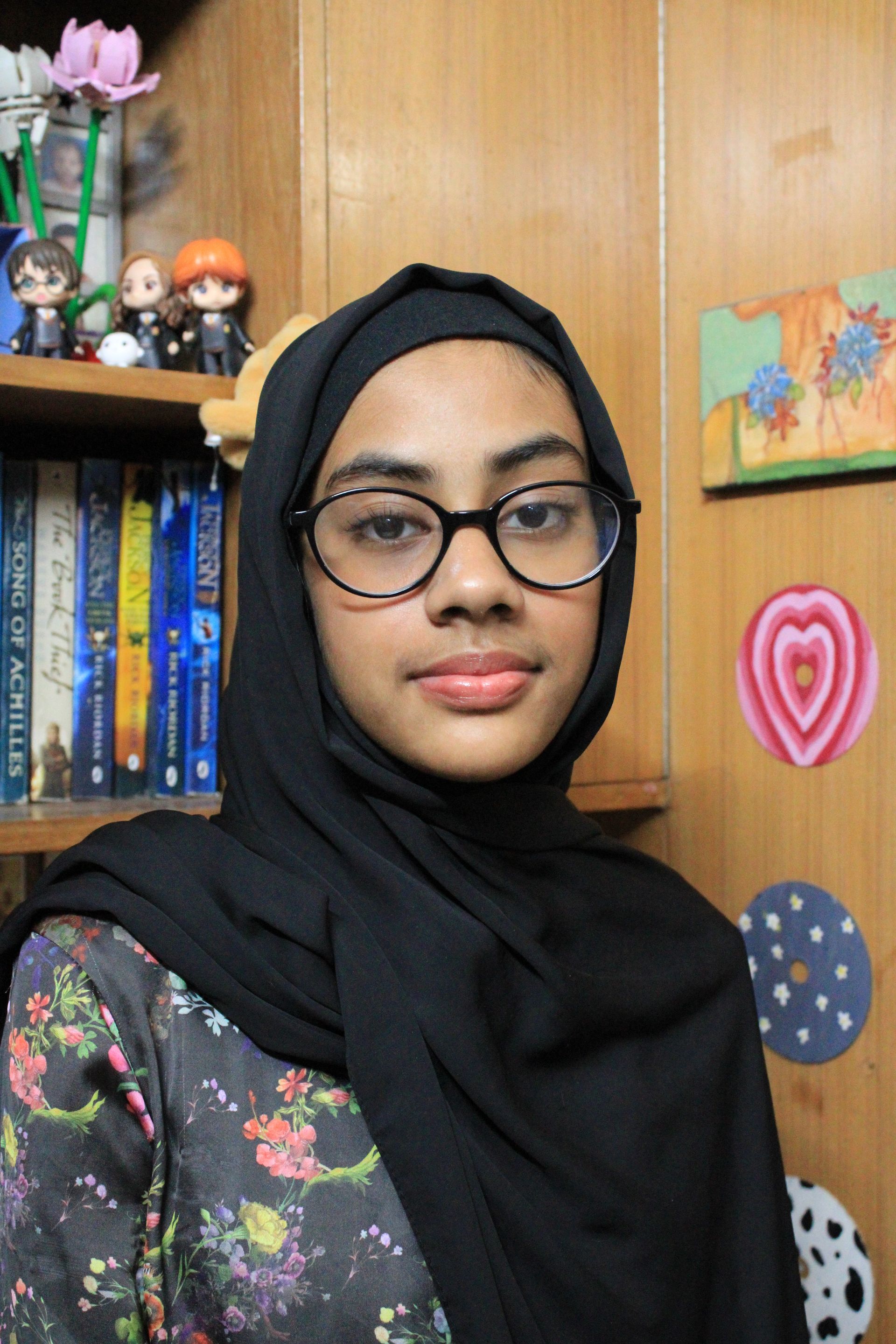In the bustling capital of Dhaka, Bangladesh, then-eight-year-old Zaria Musarrat received a screwdriver for her birthday—a gift that would spark a lifelong passion for innovation. What followed were hours spent dismantling TV remotes, calculators, and any machine she could find in her house, much to her mother's initial dismay but eventual pride.
Fast forward to today, Zaria has channeled that childhood curiosity into a mission that extends far beyond her small suburban township in the north of Dhaka, the capital of Bangladesh. As a student, she has become a voice for climate resilience and technological solutions that prioritize equity and community impact. Her approach to innovation is deeply personal, shaped by experiences that many young people her age might find overwhelming, but that she has transformed into purpose.
During the COVID-19 pandemic, Zaria watched her grandmother struggle with Alzheimer's disease, isolated and alone during lockdown. The experience worsened her grandmother's condition, inspiring Zaria to begin developing a social robot designed to provide companionship to elderly individuals. "Unfortunately, she passed away before I could finish my model," Zaria reflects, "but I continued testing and improving the prototype with other elderly, hoping that one day it can help them and make a difference to someone who suffers the same problem."
This project exemplifies Zaria's philosophy that technology should serve human needs, particularly those of the most vulnerable. She's currently developing "Serendipity Zone," a mental health app for teenagers, addressing what she sees as a critical gap in her community where mental health remains stigmatized and under-discussed. Her mother's guidance echoes through her work: "Even if you fail in life, at least know that you're doing it ethically."
Growing up in a flood-prone area of Bangladesh has given Zaria an intimate understanding of climate change's daily realities. She recalls watching from her balcony as storms battered her neighborhood, with one coconut tree—planted by her grandfather—standing resilient while others fell. That coconut tree became the inspiration for the mango tree metaphor in her climate change submission, symbolizing the resilience her country needs to develop. "Even though the entire neighborhood's trees collapsed in the storm, the coconut tree survived," she explains. "It had very sturdy roots and strong stems." This image of adaptation and strength influences her approach to Bangladesh's flooding challenges. Rather than viewing floods as insurmountable disasters, Zaria advocates for "learning to live with water rather than fearing it"—a philosophy that emphasizes community-driven solutions and technological innovation.
Her proposed solutions include permeable pavement, urban wetlands, and raised housing, with particular emphasis on serving slum areas that face the greatest flood impacts. "Slum areas are the areas being affected most by flooding, and they're also suffering from a lot of diseases due to this," she notes.
Beyond her individual projects, Zaria has found purpose in mentoring others. She leads the robotics club at her school and teaches children robotics, creating platforms for young people who share her passion for innovation but may lack opportunities or guidance. Her robotics mentor, who stays up until midnight helping students fix broken robots, taught her that perseverance can solve seemingly impossible problems.
"While creating policies and initiatives to solve problems, one of the most important factors to consider is equity," she emphasizes. "We have to ensure that the solution is helping everyone, not just a certain economic group." This commitment to inclusive innovation drives her ultimate goal: to pursue a career in mechanical engineering, dedicating herself to building technologies that address real needs and create opportunities for others.
Zaria envisions establishing a community for young innovators like herself—those with ideas and passion but lacking the resources or guidance to bring their visions to life. "I've noticed that many people have the interest and goal to create, but they don't have the opportunity or proper guidance toward making their inventions or ideas into reality," she explains.
As someone who has participated in international Olympiads and academic competitions, Zaria understands the importance of elevating young voices on global issues. She believes that when diverse perspectives are heard—particularly those often marginalized—communities become stronger and more capable of solving complex problems. "Every person brings a unique experience, and their ideas and perspectives can create stronger communities and help solve problems more easily," she argues.
Zaria's journey has taught her three fundamental lessons that guide her work: the importance of perseverance, the necessity of ethical decision-making, and the understanding that growth comes from challenges. Like the mango tree in her metaphor, she has learned to bend with storms while maintaining strong roots in her values and community. "Setbacks are not always failures," she reflects, "but they're actually opportunities to learn. It's really important to stay curious, and no matter how many setbacks we face in life, we shouldn't let that curiosity go away."
As climate change continues to challenge developing nations like Bangladesh, young innovators like Zaria Musarrat represent hope—not just for technological solutions, but for approaches that prioritize community, equity, and human dignity. Her story demonstrates that the most powerful innovations often begin not with sophisticated equipment, but with a simple screwdriver and an unwavering commitment to helping others.

Zaria Musarrat, Grand Prize Winner — Summer 2025 ChallengeUS Future Leaders Competition
[Photo/Courtesy of Musarrat]

